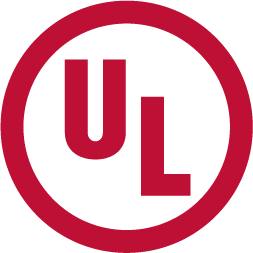Press release -
Seven Finalists Announced for the Fifth Annual ASEAN-U.S. Science Prize for Women Focusing on the Circular Economy
JAKARTA, 3 September 2019 – The Association of Southeast Asian Nations (ASEAN), through the Committee on Science, Technology, and Innovation (COSTI), and the U.S. Government, through the U.S. Agency for International Development (USAID), in partnership with Underwriters Laboratories (UL), are proud to announce the national finalists for the fifth annual ASEAN-U.S. Science Prize for Women. The 2019 prize, which promotes research on the “Circular Economy,” will be awarded to two female scientists from the ASEAN region.
Each national finalist is eligible to move to the next selection phase and represents her country in the competition for the 2019 Prize. The national finalists are (in alphabetical order by country):
Dr. Sri Suhartini from Indonesia,
Dr. Phetnakhone Xaixongdeth from Lao PDR,
Prof. Dr. Suriani Abu Bakar from Malaysia,
Dr. Moe Thanda Kyi from Myanmar,
Dr. Mary Donnabelle Balela from the Philippines,
Dr. Yan Zhou from Singapore, and
Dr. Ngoc Lieu Le from Viet Nam.
The national finalists consist of university lecturers, associate professors, and research professionals who have worked on a variety of circular-economy-related issues. These areas of focused research cover a range of disciplines within the scope of circular economy such as: biological engineering; water and sludge management; electronic, chemical, and plastic waste treatment; and management-related fields.More information on the national finalists can be found at http://scienceprize4women.asean.org.
Dr. Rowena Cristina L. Guevara, ASEAN COSTI Chairperson, said “Congratulations to all the national finalists! They represent the importance of women’s work in Southeast Asia to promote and research in expanding the circular economy. It is not only inspiring for the future generation, but their participation in this Science Prize is also a noteworthy opportunity for them to build upon their work and contribute further to the region’s society.”
“We continue to proudly support the ASEAN-US Science Prize for Women and would like to congratulate the national finalists,” said Anthony Tan, VP and GM of UL ASEAN and Australasia. “Their contribution to the region through their work in the circular economy, will help everyone to responsibly use resources creating value, profits and jobs.”
Melissa A. Brown, Chargé d’Affaires, a.i. of the U.S. Mission to ASEAN said, “The U.S. government congratulates all the national finalists on their outstanding work and commitment to addressing circular economy challenges. The United States is proud to join with citizens of ASEAN and the world to promote the work of female scientists in expanding linkages between the economy and the environment.”
In the next stage of the selection process, COSTI, USAID, UL, and the ASEAN Secretariat will judge the quality of the work of the national finalists and select two regional finalists who will present their research in October to determine the winner and honorable mention.
For additional information, contact USAID/ASEAN Communications Specialist, Samara Sanders at: sasanders@usaid.gov
Related links
Topics
- Science, technology
Categories
- women in science
- asean
- science
About ASEAN
The Association of Southeast Asian Nations (ASEAN) brings together Brunei Darussalam, Cambodia, Indonesia, Lao PDR, Malaysia, Myanmar, the Philippines, Singapore, Thailand, and Viet Nam in a community united by a common desire and collective will to live in a region of lasting peace, security and stability, sustained economic growth, shared prosperity and social progress, and to promote ASEAN vital interests, ideals and aspirations.
About USAID
The United States Agency for International Development (USAID) is the lead U.S. Government agency that works to promote and demonstrate democratic values and advance a free, peaceful and prosperous world. Through international development programs and disaster assistance, USAID partners to save lives, reduce poverty, strengthen democratic governance, and help people emerge from humanitarian crises, progress beyond assistance and attain self-reliance.
About UL
UL helps create a better world by applying science to solve safety, security and sustainability challenges. We empower trust by enabling the safe adoption of innovative new products and technologies. Everyone at UL shares a passion to make the world a safer place. All of our work, from independent research and standards development, to testing and certification, to providing analytical and digital solutions, helps improve global well-being. Businesses, industries, governments, regulatory authorities and the public put their trust in us so they can make smarter decisions. To learn more, visit UL.org.
